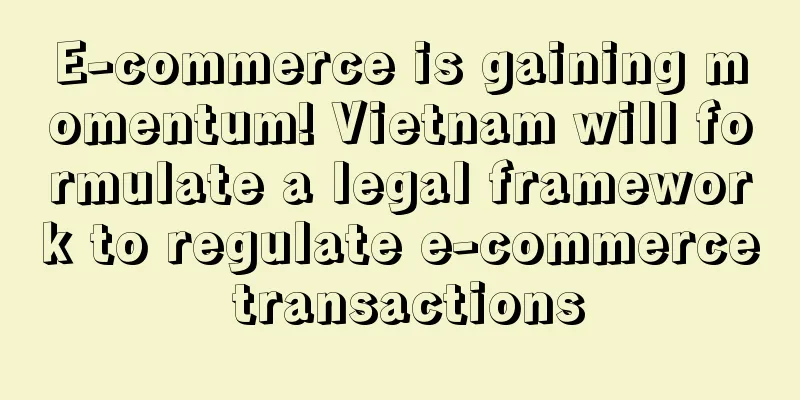Thunderstorm! More than 15,000 trademarks of a Shenzhen intellectual property company were revoked

|
The cross-border e-commerce intellectual property industry is experiencing a major earthquake!
As the cross-border e-commerce industry continues to pay more attention to intellectual property rights, trademark revocations due to intellectual property infringement have occurred frequently in recent years. Recently, the news that more than 15,000 US trademarks of a Shenzhen company were all revoked has caused a sensation in the industry. What exactly happened?
15,000+ US trademarks invalidated! Shenzhen service providers heavily fined
Recently, the United States Patent and Trademark Office officially announced on the USPTO official website a sanction decision against a Shenzhen intellectual property company and its executive director Zhang, stating that the intellectual property company and Zhang had violated the Patent and Trademark Office's trademark affairs operating regulations, identified fraudulent behavior, revoked more than 15,000 trademarks represented by the company , and permanently closed Zhang and the company's USPTO accounts.
The announcement shows that the company and its employees' rights to apply for U.S. trademarks and patents, submit relevant trademark documents, and have a myUSPTO.gov account have all been terminated. As for whether their trademarks are on the revocation list, the editor has also compiled a complete list. Sellers can click the link to check for themselves: https://www.uspto.gov/sites/default/files/documents/TM-Sanctions-Order-Yusha-Zhang.pdf
A seller revealed that the company's executives also received emails from the United States Patent and Trademark Office. The content of the emails showed that the company and its employees violated the USPTO's practice rules in the Trademark Affairs Office, and engaged in illegal practice, providing false residential addresses, providing false signatures, and abusing USPTO accounts, resulting in a large backlog of provincial trademark reviews at the United States Trademark Office.
This explosion of intellectual property rights in the cross-border circle really shocked many cross-border sellers. Some sellers even revealed that the reason why the U.S. Trademark and Patent Office revoked the trademark was that a small number of trademark agencies impersonated practicing U.S. attorneys and forged attorneys' signatures.
Some sellers said that by counterfeiting a trademark registration, they can earn an extra $100, which will lead to a reduction in the cost of counterfeit trademark registration and a reduction in market prices. The risks involved are self-evident.
In fact, as early as June this year, the news that the company's 14,000+ trademarks would be forcibly revoked had spread throughout the cross-border circle. But then a netizen posted a screenshot of what appeared to be the company's employees responding to the incident, showing that the US Trademark Office did not impose any substantial sanctions, but only issued a notice.
Six months later, the case was finally ruled, which also sounded a wake-up call to many sellers. In a time when the trademark market is full of mixed fish and dragons and the quality of service providers varies, some veteran sellers shared their own experience, saying that when registering trademarks and patents, you should still look for established intellectual property companies; you need to be extremely cautious with service providers who offer super low prices (which may be plagiarizing lawyer qualifications) or super high prices (charge a lot but still can't do anything good); when looking for service providers, you must not only compare prices, and you must not trust verbal words.
"The official fee for a U.S. trademark is $250, the lawyer charges $100, plus a set of evidence costs $300. The normal hard cost of intellectual property is around $2,500," said a seller. Sellers can refer to this price.
In addition, some sellers gave suggestions. When looking for cooperative services, one should first look for companies that are formally registered and operating (log in to the Trademark Office of the State Intellectual Property Office to check); secondly, US trademark registration is generally handled by practicing trademark attorneys, and relevant practice certificates may be required when necessary.
There are turmoil in the industry every year, and this year there are more than ever. From the suspension of accounts due to fake reviews and infringement, to the brand's joint punishment, to the current Shenzhen intellectual property company being publicly identified as a fraud by the US Intellectual Property Office, the cross-border circle seems to have never been peaceful, and the difficulties of cross-border people are not just talk ...
"Rogue" law firm took action, 500 stores were frozen, and sellers collectively responded to the lawsuit
I believe that many sellers in the industry have had the experience of being complained about infringement. No matter which platform the seller is on, as long as the law firm finds infringement, there is a high possibility that the account will be frozen. After encountering this situation, most sellers choose to settle, but recently, a group of Chinese sellers whose store accounts were frozen chose to respond collectively.
A seller recounted the whole process of how he and other sellers "fought against" the American DAVID law firm until they "won."
It is understood that the store accounts that were blocked this time were sellers of wedding dress products on AliExpress and Alibaba International Station . A total of 524 stores were frozen , and the one who complained about the infringement was the "reputable" American DAVID law firm.
On November 25, many sellers in the industry received notifications of account freezes. After a short period of negotiation, these sellers prepared to launch a "resistance." Subsequently, the sellers consulted a law firm that had experience in responding to lawsuits. After communication, the sellers realized that the best way to deal with this incident was to respond to the lawsuit, which would purify the industry environment.
More and more sellers chose to join the "camp", and these more than 100 sellers began to collect and provide relevant information, and decided to pay the platform lawyer fees according to the frozen amount. In the end, the plaintiff's lawyer announced that the lawsuit against the 524 frozen stores was withdrawn, and the counterattack of more than 100 sellers was successful.
It took these sellers only one week from receiving the freezing notice to gathering their companions, collecting information, and then unfreezing the blocked accounts. It was thanks to the efforts and struggle of these 100 sellers that 524 store accounts were unfrozen.
In fact, this situation is not only happening in the wedding dress industry, but also in other industries and other platforms. Many sellers have had the same experience. Many sellers said that when they encounter such a situation, they basically choose to settle. Although they know they are being "cheated", they can only swallow their anger.
This time, this group of sellers used unity and toughness to get the desired results, and also received praise from many sellers in the industry ↓
"I was ripped off by this law firm just half a year ago. I feel relieved this time!" "If you have the confidence, you should resist and worship the boss~" "In the past, we only heard about reconciliation. This is the first time I've seen such a satisfying result. It's really impressive!"
But in this case, the reason why these more than 100 sellers won was that the evidence provided by the plaintiffs was not sufficient. These sellers who rebelled were not unprepared, but were fighting for their own legitimate rights and interests. In other words, the above-mentioned sellers’ treatment method is not applicable to sellers who have indeed infringed.
In recent years, more and more sellers have been involved in infringement in the industry. Many sellers have reported that the reason why the proportion of TROs by “rogue” law firms is getting higher and higher is because they see more and more Chinese sellers choosing to settle, and even some patents, trademarks and copyrights that seem to be risk-free have been the subject of complaints.
"Infringement" is a commonplace topic. Undoubtedly, infringement brings huge losses and costs to sellers. Sellers should pay more attention to their brands while paying attention to their own products. If they confirm that they are receiving malicious complaints, they should take up arms in time to safeguard their legitimate rights and interests.
intellectual property trademark Revocation |
>>: Amazon's payment collection period is shortened by 11 days, trial implementation starts today!
Recommend
The number of pets exceeds 18 million! Japan's pet market is booming
The Foreign Agricultural Service (FAS) and the Gl...
What is ByteStand? ByteStand Review, Features
<span data-docs-delta="[[20,{"gallery"...
Etsy issues new warning, sellers should pay attention to product compliance
Etsy is a platform known for its handcrafted prod...
What is isaacreina? isaacreina Review, Features
isaacreina is a purse-focused website that source...
What is tenrenfinetea? tenrenfinetea Review, Features
Tenrenfinetea was founded in 1953, when a small te...
UK retail footfall in July fell 14.2% from three years ago, but retail sales rose 1.6%
According to the BRC (British Retail Consortium )...
Alibaba International Station launches "One-stop solution for sea and land transportation" to help smooth Shanghai's foreign trade logistics
As the most important port city for domestic impo...
Shopee 11.11 promotion is coming: support discounts are increased to drive consumption to a new high
November 1, 2024, China - As the Southeast Asian ...
Nike's profit surges 196% as it posts best annual performance ever
Nike's annual profit soars 196% Nike announce...
UK online retail sales fall 4.7% in June
Recently, the UK Office for National Statistics (...
What is FBA Toolkit
FBA Toolkit allows Amazon sellers to track daily p...
Continuously losing money! Sellers lay off entire teams, behind the "cooling down" of cross-border e-commerce
Sellers must have confidence in cross-border e-co...
What is up2shop? up2shop Review, Features
up2shop supports automatic data exchange with the...
What is Sea Spider Technology? Sea Spider Technology Review, Features
Zhejiang Haizhu Network Technology Co., Ltd. is a...
New categories grow rapidly! Tmall upgrades four industries: men's, perfume, pets, and trendy toys
At the 58th Beauty Expo held in Guangzhou recentl...









